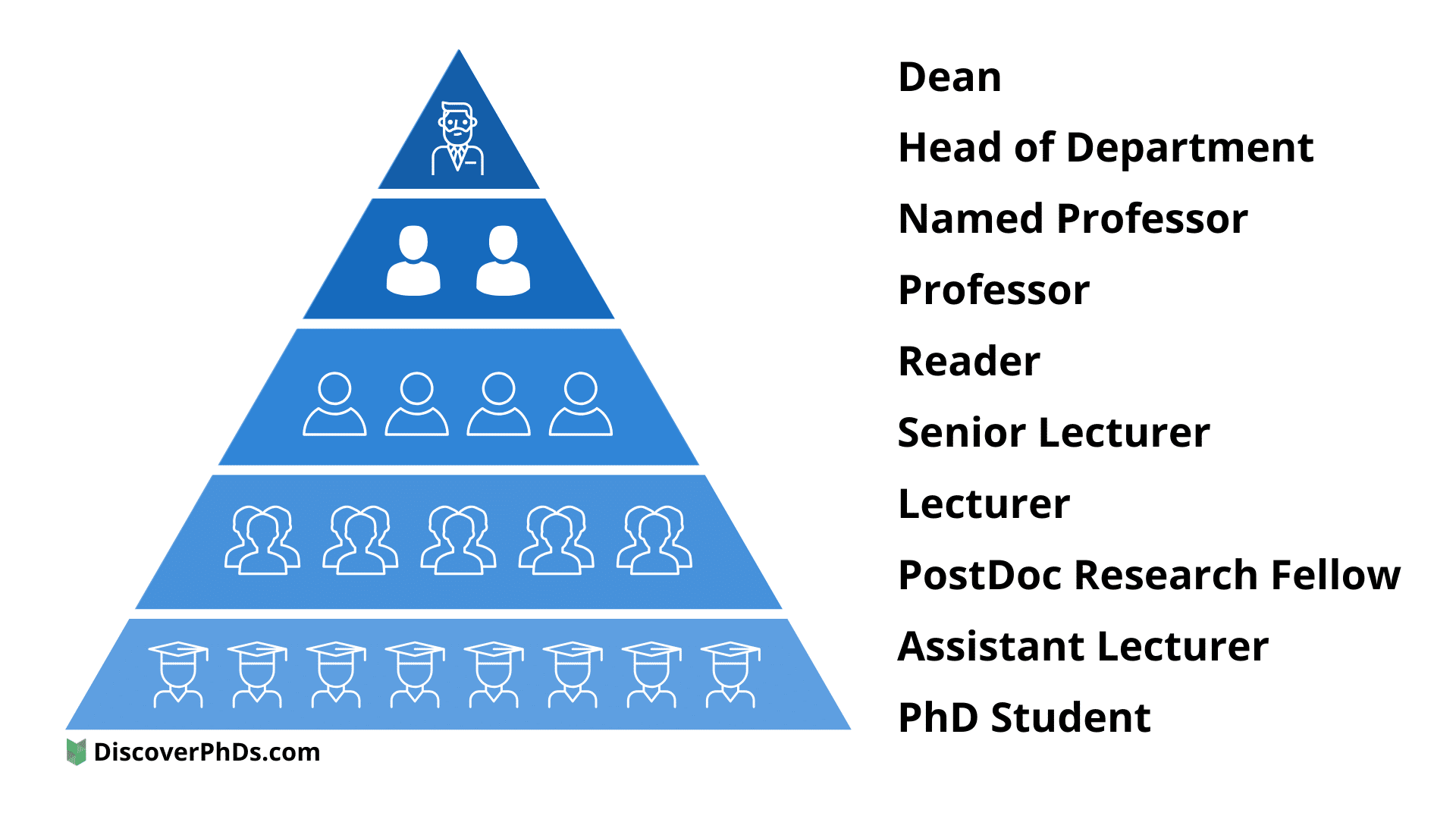Starting a career as a university lecturer can be one of the most rewarding highlights of your academic journey. It can also be one of the most frightening if you’re not sure what to expect!
As a new university lecturer, you will spend about half of your time teaching, including preparing for and delivering lectures, seminars and tutorials. Outside of this, you will spend about a third of your time on research activities, from conducting your own studies to peer-reviewing journals and preparing research bids. Your remaining time will be allocated to administrative tasks such as reviewing applications, timetables and taking part in training.
We’ve created this guide to go into more detail on the above. We outline what your roles and responsibilities will be and how they develop as you advance up the career ladder. We also share what you can do to launch your career with an impressive start.
Because of the similarities between what you can expect as a new university lecturer and what you can do to prepare for this career path, we recommend you also read our ‘How to prepare to become a university lecturer’ guide as the advice given therein will also apply.
Core Themes of a University Lecturer
As a university lecturer, your day-to-day activities will focus on three core themes: teaching, researching and carrying out administrative tasks. We will cover these themes and what you can expect in terms of your career progression below.
Teaching

As a new university lecturer, you will be expected to spend half of your time teaching. While this may seem like a lot, you will only spend a small part of it physically teaching. The majority of your time will be used preparing. This is because while a lecture may only take one hour to deliver, it may take a day to create your lecture slides, design tutorial questions and find recommended material for further reading.
One of the core objectives of teaching is to transfer knowledge from yourself to your students. Merely passing on information is not enough; it’s your job to make sure they understand it.
We recommend the following tips to help you with this:
- Prepare thoroughly – New lecturers make the mistake of planning their starting lectures well but then slip in the planning on their later lectures. Whether this is due to complacency, poor time management or assuming the assumption they will be able to improvise, the quality of their teaching suffers.
To prevent this, ensure you plan your last few lectures with as much attention and enthusiasm as for your first lectures. Not teaching as well as you can won’t only reflect poorly on you, it’s also not fair for your students. Besides, being inundated with questions from confused students a week before their exam isn’t enjoyable for anyone! - Ask questions – In the early stages of your teaching career, gather feedback on your teaching style. You can do this indirectly in several ways. For example, you can question your students about the material you’ve just taught and measure their understanding through the depth of their answers. If they can’t answer questions on something which you’ve just been lecturing on for the past 30 minutes, you probably aren’t explaining the material as well as you think. In addition to this, periodically assess the engagement level of your students. If they seem disinterested, take it as a sign that you need to inject more energy into your delivery. A simple way to do this is to make your lectures more dynamic by using short videos, giving demonstrations and asking short questions after each topic.
- Delivering seminars and tutorials.
- Designing and preparing course material.
- Marking coursework.
- Creating and marking examinations.
- Supervising student research projects, including undergraduate projects, Master’s dissertations and PhD theses.
- Acting as a personal tutor to students.
- Providing office-hour support to students.
Researching

As a professional academic, you will be judged based on the quality and extent of your research. This isn’t only important for your reputation, but also your university’s. Increased personal reputation will help improve your universities’ research credibility, table rankings and ability to secure future opportunities.
As such, approximately one-third of your time will be spent undertaking research. This isn’t only going to be limited to your personal research; you will also be expected to support your colleagues in their studies. This could be through reviewing their work or discussing their concepts with them.
- Conduct research projects and participate in developing your university’s research profile.
- Write up and prepare your research for journal publication.
- Peer-review research papers belonging to your colleagues and the wider research community.
- Attend seminars and present in conferences.
- Prepare and submit proposals to win research project funding for your department.
- Collaborate with other institutions and with industrial, research and government organisations.
Given the importance of all these activities, your time will usually be divided evenly across them, with a slightly higher emphasis on conducting research.
Securing funding will be one of your most important responsibilities as your department will require ongoing financial support to continue carrying out its research. For example, funding is needed to purchase new equipment and supplies, facilitate research projects and postgraduate study, and facilitate travel for networking and collaborating.
In the beginning, given your lack of experience, you won’t be expected to devote a significant amount of time to this area. However, as you progress in your career, you will be expected to set aside more time for this.
Administration

No matter how many academic ranks you climb, you will always have to perform administrative tasks.
In fact, as your academic position increases, you will often be required to assume more administrative responsibilities. This applies in particular to management and leadership positions such as ‘Head of Department’ or ‘Head of Student Development’. If you’re fortunate enough to reach these types of posts, you’ll likely start spending more than half of your workweek on administrative tasks, with little time left for research or teaching.
- Assessing student admission applications.
- Running induction programmes for new students.
- Organising student and laboratory timetables.
- Participating in decision-making committees held by your department.
- Participating in staff training exercises.
Career Progression

At the start of your career, most of your time will be spent gaining teaching experience and heightening your research profile. You should anticipate this taking several years due to the amount of development you will require.
While some careers have a slow start, this is not at all the case for the modern-day lecturer. From the onset, you will be given a significant amount of responsibility and independence; although you will always have the support of your colleagues if you need it. As your level of competence increases, you will be given an increased level of responsibility in teaching and administrative tasks.
Despite how well you balance all of your responsibilities, advancing through the university ranks will almost always place the greatest importance on how much you’ve contributed to the research reputation of the university. Besides this, it will also depend on factors which will be beyond your control. These include the financial standing of your department and how often your university holds promotion reviews.
For more information on the academic titles and ranking system used in UK universities, as well as the typical level of experience and responsibilities expected from each of these titles, see our detailed guide here: UK Universities – Academic Titles And Hierarchy Explained.
Advice From Current Lecturers
To find out first-hand what it’s like to be a lecturer, check out our exclusive interviews with university lecturers and professors. Find out what challenges they’ve faced, what advice they have for students and more!
